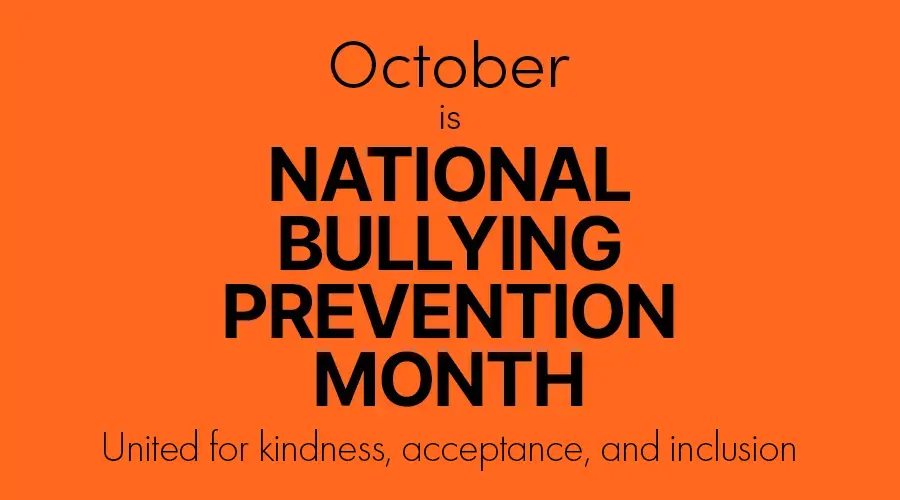

October’s National Bullying Prevention Month reminds us that students, parents, teachers, and school administrators all play a role. Positive change comes as we begin to emphasize respect and inclusion on campuses across the country and work as a team to educate everyone while creating a healthy atmosphere where healthy choice-making is encouraged.
What Is Bullying
Bullying is unwanted, aggressive behavior among school-aged children that involves a real or perceived power imbalance. The behavior is repeated, or has the potential to be repeated, over time. Both kids who are bullied and who bully others may have serious, lasting problems.
In order to be considered bullying, the behavior must be aggressive and include:
An Imbalance of Power: Kids who bully use their power—such as physical strength, access to embarrassing information, or popularity—to control or harm others. Power imbalances can change over time and in different situations, even if they involve the same people.
Repetition: Bullying behaviors happen more than once or have the potential to happen more than once.
Bullying includes actions such as making threats, spreading rumors, attacking someone physically or verbally, and excluding someone from a group on purpose.
Types of Bullying
There are three types of bullying:
Verbal bullying is saying or writing mean things. Verbal bullying may include:
Social bullying, sometimes referred to as relational bullying, involves hurting someone’s reputation or relationships. Social bullying may include:
Physical bullying involves hurting a person’s body or possessions. Physical bullying may include:
What can we do to prevent and stop this?
Parents
Parents play a key role in preventing and responding to bullying. If you know or suspect that your child is involved in bullying, there are several resources that may help.
Recognize the warning signs that your child is involved in bullying. They could be being bullied, bullying others, or witnessing bullying. Although these signs could signal other issues, you should talk to your child if they display any sort of behavioral or emotional changes. Many times kids won’t ask for help, so it is important to know what to look for. If your child is at immediate risk of harming himself or others, get help right away.
Learn what bullying is and what it is not. Understanding what bullying is is the first step in forming a plan to prevent or respond to bullying with your child. Many behaviors that look like bullying may be just as serious but may require different response strategies.
Cyberbullying often requires different strategies than in-person bullying. Learn how to work with your kids to prevent cyberbullying and how to respond when it occurs. Be aware of their part with social media.
Utilize tips and tools to talk to your child about bullying. Opening lines of communication before your child is involved in bullying makes it easier for them to tell you when something happens. It is also important to work with the school to help prevent bullying before it starts.
If you know or suspect bullying has occurred, learn how to find out what has happened with your child. Understanding what has happened can also help in communicating with school or community officials about the situation.
School
Schools are a primary place where bullying can happen. Helping to establish a supportive and safe school climate where all students are accepted and knowing how to respond when bullying happens are key to making sure all students are able to learn and grow.
Our educators and staff have and continue to be trained on knowing what bullying is and what it is not, distinguishing between bullying and daily conflicts, looking for warning signs and the many faces of bullying, for who might be involved, who might be at more risk and establish a safe school climate.
Plato Academy Charter Schools are committed to the prevention of any cyberbullying/bullying behaviors and will take subsequent swift action in response to any reported cyberbullying/bullying or harassment incidents in accordance with Florida Statute 1006.147. Providing quality education in an environment of safety is a core value to the administration and teachers at Plato Academy as referenced in our Mission Statement.